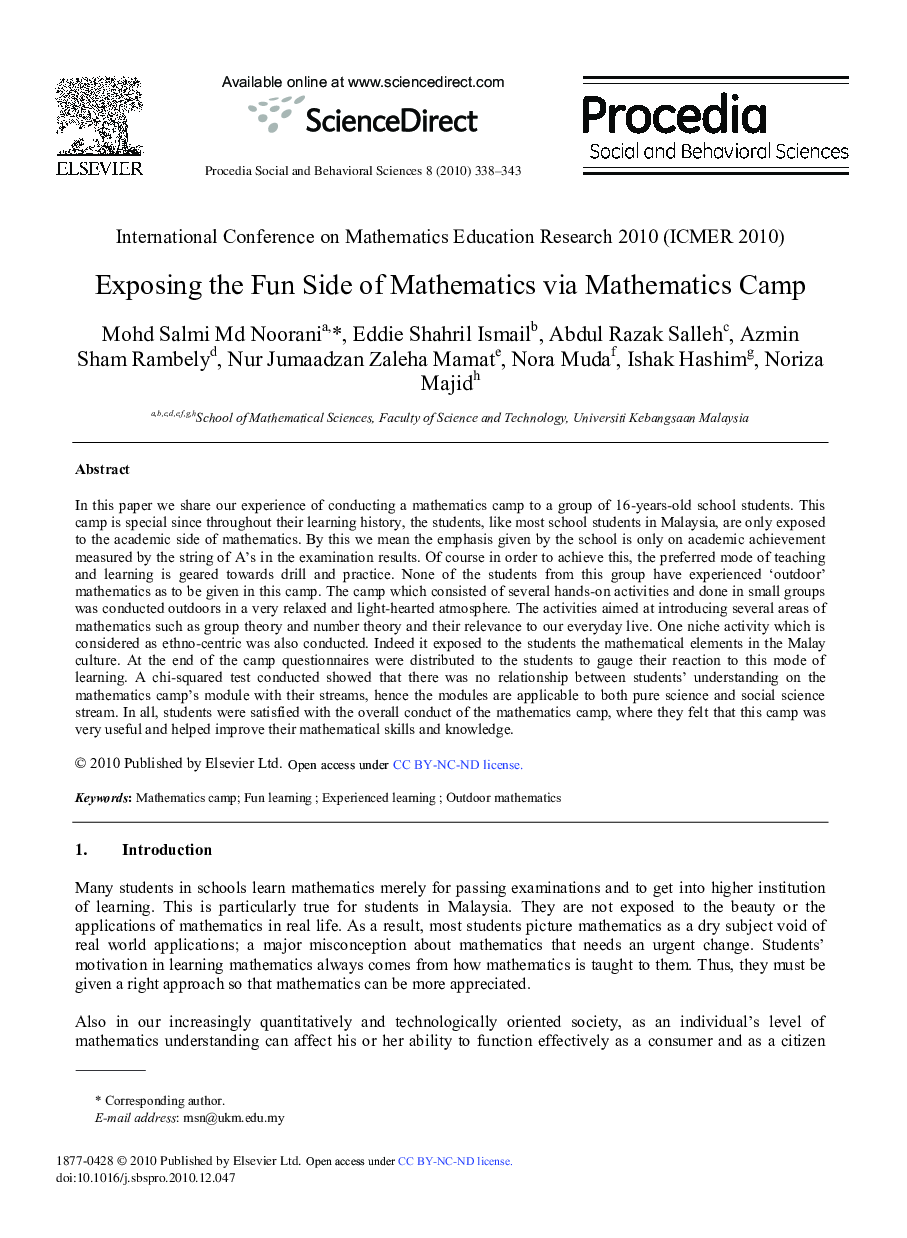| کد مقاله | کد نشریه | سال انتشار | مقاله انگلیسی | نسخه تمام متن |
|---|---|---|---|---|
| 1124770 | 1488551 | 2010 | 6 صفحه PDF | دانلود رایگان |

In this paper we share our experience of conducting a mathematics camp to a group of 16-years-old school students. This camp is special since throughout their learning history, the students, like most school students in Malaysia, are only exposed to the academic side of mathematics. By this we mean the emphasis given by the school is only on academic achievement measured by the string of A's in the examination results. Of course in order to achieve this, the preferred mode of teaching and learning is geared towards drill and practice. None of the students from this group have experienced “outdoor” mathematics as to be given in this camp. The camp which consisted of several hands-on activities and done in small groups was conducted outdoors in a very relaxed and light-hearted atmosphere. The activities aimed at introducing several areas of mathematics such as group theory and number theory and their relevance to our everyday live. One niche activity which is considered as ethno-centric was also conducted. Indeed it exposed to the students the mathematical elements in the Malay culture. At the end of the camp questionnaires were distributed to the students to gauge their reaction to this mode of learning. A chi-squared test conducted showed that there was no relationship between student's understanding on the mathematics camp's module with their streams, hence the modules are applicable to both pure science and social science stream. In all, students were satisfied with the overall conduct of the mathematics camp, where they felt that this camp was very useful and helped improve their mathematical skills and knowledge.
Journal: Procedia - Social and Behavioral Sciences - Volume 8, 2010, Pages 338-343